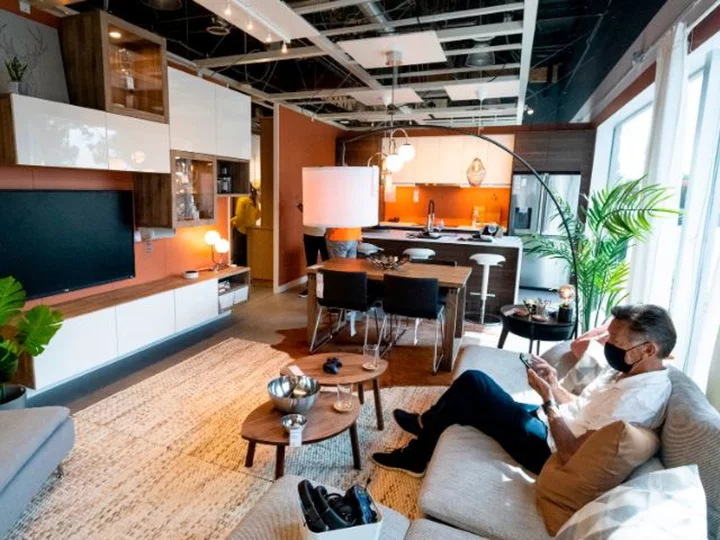Aspiring home owners are finding the housing market to be pretty grim lately. With record-high mortgage rates, expensive insurance, and a limited selection of pricey homes, many are staying put — whether they want to or not.
But the bleak outlook could be a boon for Ikea, a budget furniture seller that appeals to people who need to furnish small spaces, can't spend much and don't expect products to last very long.
With "people maybe not being able to get into that dream house right now, whether for affordability or availability ... they're looking for solutions that might not be as permanent," said Michael Brown, partner in the consulting firm Kearney's consumer products and retail practice. He added that unlike its competitors, Ikea's offerings work well in smaller spaces. "I actually think the environment is ripe for them to go and expand at this point in time," he said.
In fact, the chain announced a $2.2 billion investment in the US market in April, its largest-ever investment in the country. Over the next three years, it plans to open eight large stores and nine smaller "plan and order points," where customers can chat with design consultants and order products. It also wants to improve delivery and to open 900 new order pick-up locations.
"We see endless opportunities to grow" in the US, Tolga Öncü, head of Ikea Retail for the Ingka Group, Ikea's Dutch holding company, said in a statement at the time.
Trading down
By charging ahead now, while home-ownership and renovations are out of reach for budget-conscious Americans, Ikea can reach more people who may be in the market for their products, and possibly hold onto those customers in the future. Plus, some of the things that people consider negative about Ikea could turn into positives.
At "low-cost discretionary retailers... products often feel very temporary and almost disposable for people," said Karl Zimmermann, a partner at the consulting firm Bain with expertise in retail. But for some customers, a temporary option could be just the thing. A retailer like Ikea "could absolutely benefit from a period like this, where people are pulling back from bigger expenditures and doing smaller, more incremental moves to solve their needs," he said.
"I don't think that this is what [Ikea] would have picked in an ideal state," said Sucharita Kodali, principal analyst at Forrester, a research and consulting firm, referring to the difficult housing market and consumers slashing spending in the space. But, "they're at the low end, and they may be able to pick up some share from people who are trading down."
At a place like Ikea, people may now be willing to trade their time and their energy for the lower price, noted Zimmermann.
That's similar to the trade people are willing to make to shop at Aldi, a no-frills budget supermarket which is largely stocked with store brands and where items are stacked in cartons. When food inflation soared, so did Aldi's sales. At this economic moment, "I can see concepts that are pointed ... towards a lower-income consumer having tons of runway," he said.
Those new plan and order locations could also be a draw.
"In the past, design services were mostly accessible to those that could afford them," said Marisa Ortega, retail analyst at the research firm Mintel. "Now we are seeing more retailers offering this perk."
Meanwhile, once-mighty retailers are feeling the pain.
After splurging on home improvement projects during the pandemic, consumers are pulling back. And those that invested in new decor a few years ago might not buy anything new for a while.
Home improvement retailer Lowe's lowered its profit and sales outlook for the year in May, saying consumers were spending less on home improvement. Home Depot also posted disappointing sales for its first quarter and lowered its outlook for the year. Furniture retailer Ethan Allen reported that in the three months ending on March 31, its net sales in retail fell 9.5% year-over-year.
Ikea, which is not publicly traded, reported that its retail sales rose by 6.5% in fiscal year 2022, but didn't post quarterly results. Its competitors also saw sales rise last year.
A budget store can scoop up customers who are looking for cheaper alternatives, rather than abstaining from buying altogether. And with more locations and options, it can reach more people.
"Many companies hold back on spending during economic downturns," Ortega said. "So this expansion can give Ikea a leg up to build stronger relationships with consumers and position itself for long-term growth."
— CNN's Anna Cooban, David Goldman, Nathaniel Meyersohn and Parija Kavilanz contributed to this report.

